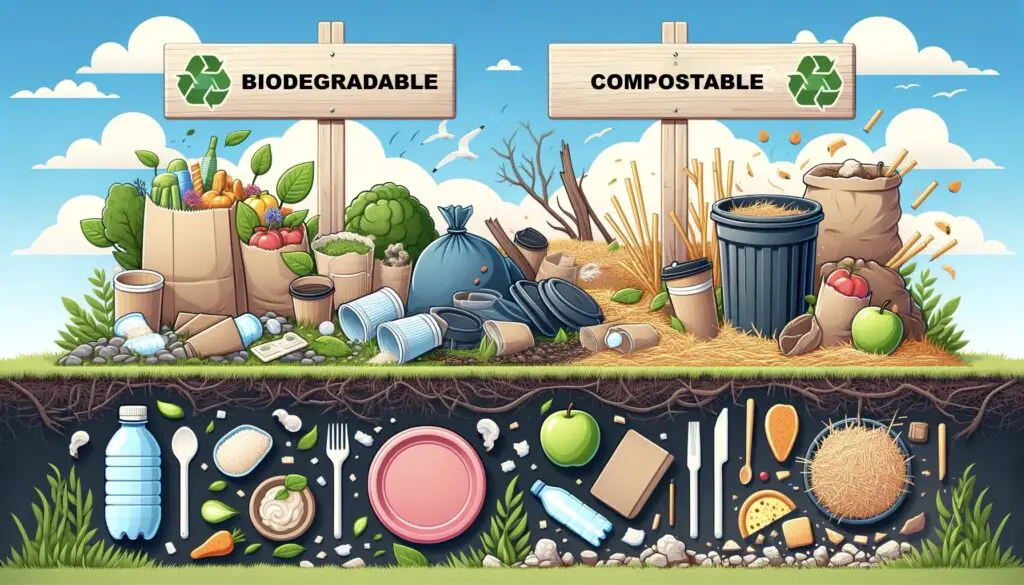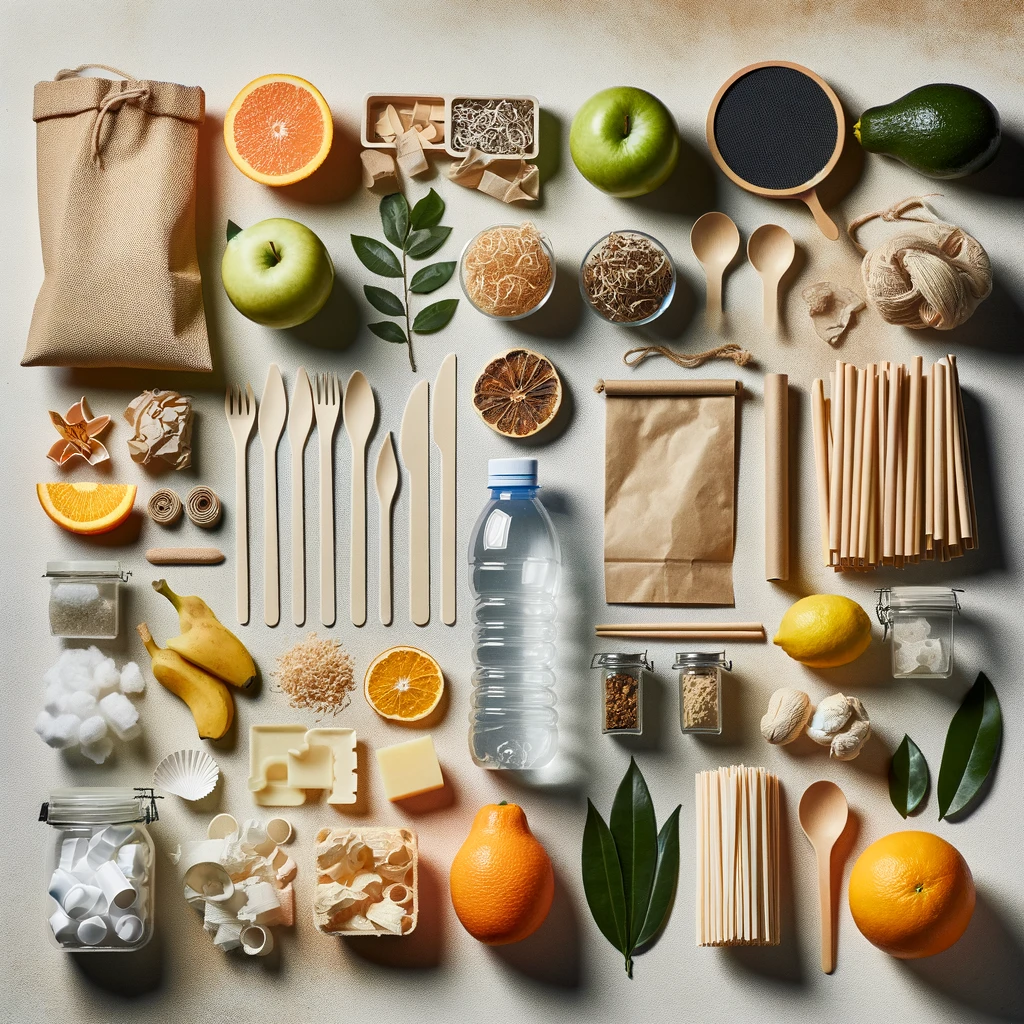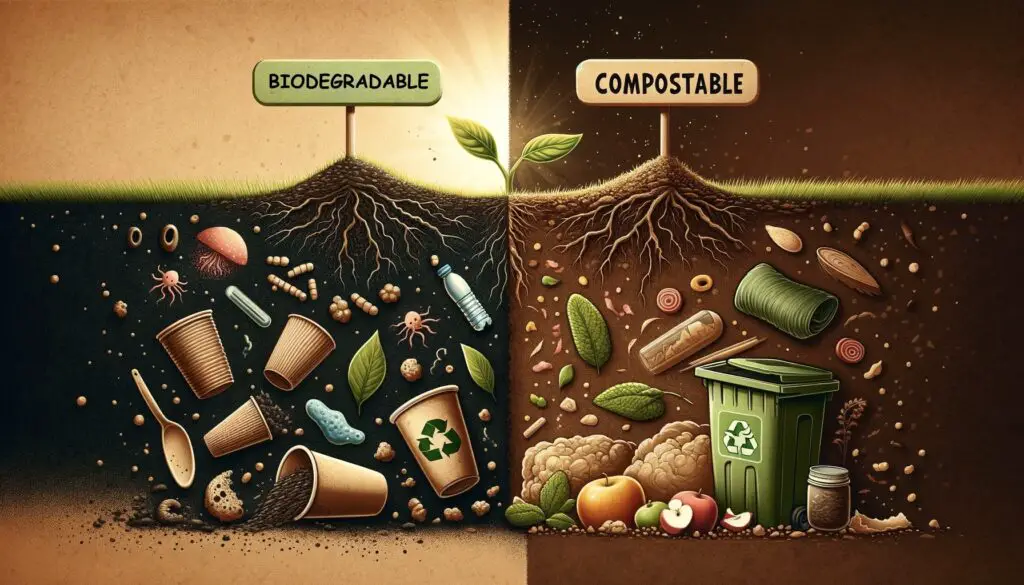Understanding Biodegradable and Compostable Materials: There’s a significant difference.

Biodegradable Materials
- Definition: Biodegradable materials are those that can be broken down naturally by microorganisms such as bacteria and fungi over time. This process results in the formation of water, carbon dioxide, and biomass. Some of material can be toxic. Many “biodegradable” products are engineered to turn into micro-plastics faster.
- Characteristics:
- Biodegradation can occur in various environments, including water and soil.
- The time frame for biodegradation can vary significantly, from a few weeks to several years.
- There is no requirement for biodegradable materials to leave behind no toxic residue.
- Examples: Paper, certain types of plastics, and organic materials like food waste.
Compostable Materials
- Definition: Compostable materials are a subset of biodegradable materials that break down into non-toxic components, which enriches the soil.
- Characteristics:
- Composting typically occurs in a controlled environment with specific humidity and temperature conditions.
- Compostable materials break down within a predetermined time frame, usually within 90 to 180 days in commercial composting facilities.
- The process leaves behind no toxic material and provides nutrients to the soil.
- Examples: Certain plastics made from plant materials, food scraps, and yard waste.

Environmental Impact
Biodegradable Materials
- Pros:
- Reduces landfill waste.
- Less harmful than non-biodegradable materials if leaked into natural environments.
- Cons:
- If not properly managed, they can release methane, a potent greenhouse gas, in landfills.
- The term ‘biodegradable’ can be misleading as it doesn’t specify the time required for decomposition.
- Can result in micro-plastics and toxic chemicals.
Compostable Materials
- Pros:
- Enhances soil quality when properly composted.
- Reduces reliance on chemical fertilizers.
- Helps to recycle organic waste.
- Cons:
- Requires specific conditions for effective composting.
- If disposed of in landfills, they may not compost properly and can produce methane.
Conclusion
Both biodegradable and compostable materials can breakdown faster than traditional, non-degradable materials. However, biodegradable products can result in toxic waste including micro-plastics, whereas compostable products enrich the soil.




